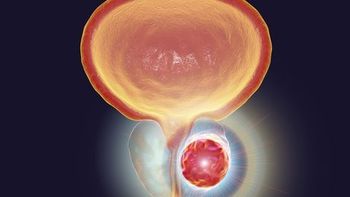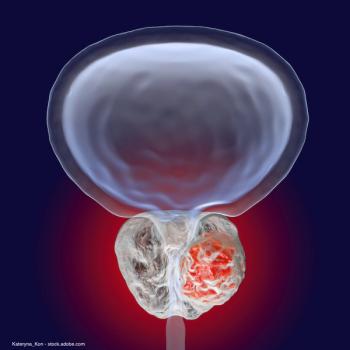
Prostate Cancer
Latest News
Latest Videos

CME Content
More News

“I think the key [is to not] get rid of financial incentives. I don't think that's possible. [Rather, we should] align financial incentives [so] that [we] can promote what is best for patients,” says Lillian Y. Lai, MD.

"This large cohort study confirms the safety of AS, as shown in the low rate of metastasis or death, including those who subsequently converted to treatment," writes Badar M. Mian, MD.

"Perhaps there is another Nobel Prize waiting to be had if we could reduce the cardiovascular effect of ADT and unlock the answer to the controversy surrounding the comparative safety and impact on cardiovascular health between GnRH agonists and antagonists," writes Michael S. Cookson, MD, MMHC.

In this interview, Ardeshir (Art) Rastinehad, DO, discusses the current state of focal therapy in prostate cancer, the role of fusion biopsy in pushing the treatment forward, and what institutions looking to implement focal therapy should know.

"What will probably be surprising to the reader is that patients managed in markets with higher average prices for prostatectomy were not more likely to undergo treatment," says Lillian Y. Lai, MD.

“We're increasingly seeing the addition of molecular and genetic tests to guide us in terms of the cancer treatment that we provide our patients,” says Scarlett Gomez, MD, PhD.

Following a high intensity interval training exercise regimen was associated with decreased PSA levels in men undergoing active surveillance for prostate cancer.

The results also showed a trend toward improved overall survival with the combination of the PARP inhibitor and novel hormonal agent; however, the data remain immature.

Paige Prostate AI-based software provides pathologists with a supplementary assessment of prostate biopsy images that identifies the area with the highest likelihood of harboring cancer.

“We need to do a better job sampling the prostate,” says Matthew J. Allaway, MD.

The guideline update is supported by findings from the pivotal RTOG 96-01 trial.

Setting expectations and minimizing ports and drains are among steps to take.

In this interview, urologist Matthew J. Allaway, MD, gives an overview of transrectal vs transperineal biopsies, discusses how his own cancer battle influenced his professional path, and how his PrecisionPoint system aids in the detection of prostate cancer.

Michael S. Cookson, MD, previews the 2021 AUA Annual Meeting, with a focus on prostate, bladder, and kidney cancer. His in-depth analysis covers the plenary sessions, late-breaking abstracts, and other abstracts of interest.

“When a man initially presents with metastatic disease, or fails initial systemic therapy, our approach has to be different. We are more concerned that their disease is more aggressive,” says Leonard Gomella, MD.

“Through these 2 small punctures, we can manipulate the device with the methodology to sample the entire prostate, both anterior apical and the posterior regions, where we find the vast majority of our cancers,” says Matthew A. Allaway, MD.

“The transperineal [prostate biopsy] approach is safer because the needles are passed through the perineal skin…so, we can sterilize that skin and if we enter through that passageway, we mitigate, if not eliminate, the risk of infection and sepsis,” says Matthew J. Allaway, MD.

“The 3 major barriers we face [are] training, equipment, and reimbursement,” says Matthew A. Allaway, MD.

“These results may help guide policy making, developing quality indicators, and developing targeted continued education for physician and patients embarking on active surveillance to establish realistic expectations,” said Antonio Finelli, MD.

Using stereotactic body radiotherapy to reduce the number of treatment sessions with fewer, more intense doses did not lead to an increase in gastrointestinal or genitourinary acute toxicity.

The FDA approved the ready-to-use 6-month subcutaneous depot formulation of leuprolide mesylate earlier this year for the treatment of patients with advanced prostate cancer.

Risk factors Dr.Zhang highlights include site of metastases, PSA response, and metastases burden.

“The MRI/ultrasound-guided transperineal approach allows easy access to anterior prostate tumors,” says Marc A. Bjurlin, DO, MSc, FACOS, in this video.

"The major shift for many urologists over the past 10 years has undoubtedly been the understanding of how to treat advanced prostate cancer," writes Raoul S. Concepcion, MD, FACS.

“New and different drugs indicated at different points in the treatment cycle have been the biggest change," says 1 urologist.













